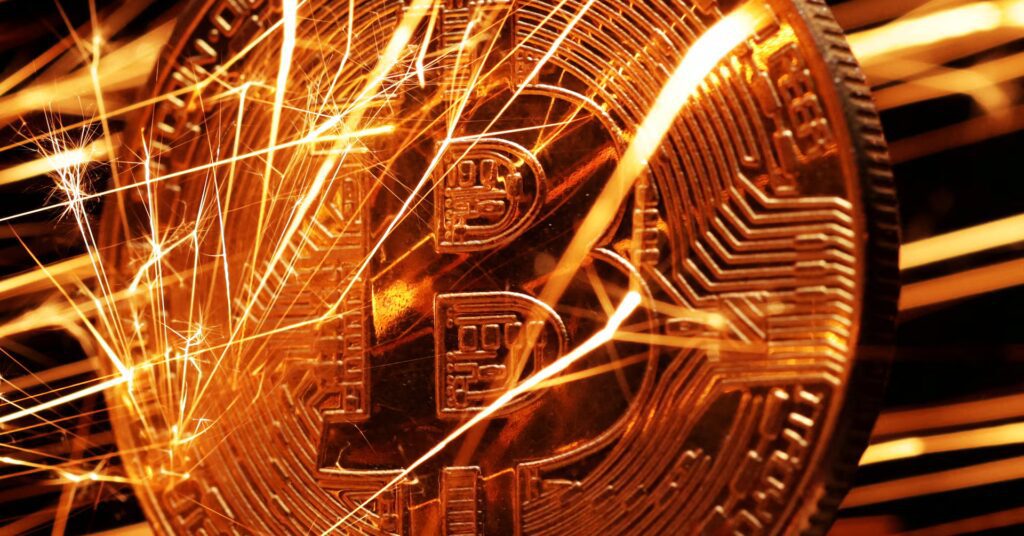NEW YORK/PARIS, Oct 8 (Reuters) – Crypto companies’ race to sell stock-linked tokens is raising alarm bells among traditional financial firms and regulatory experts, who warn that fast-growing new products pose risks to investors and market stability.
Register here.
Although many products are marketed as stocks, they rarely offer the same rights, information and protections as traditional stocks. Instead, they look more like riskier derivatives, according to a Reuters analysis of several products and interviews with a dozen industry executives and legal experts. This increases risks for investors, while tokenization, more broadly, could harm market integrity and fragment liquidity if left unmonitored, critics say.
“You buy exposures to these stocks by creating a sort of synthetic instrument,” said Diego Ballon Ossio, a partner at law firm Clifford Chance in London. “A lot of the burden falls on you to understand exactly what you’re buying.”
A few companies have issued their own experimental stock tokens on the blockchain – software that acts as a shared digital ledger – but most of the tokenized stocks are pegged to public companies and issued by third parties like Ondo Global Markets and Dinari. Some tokens are backed 1:1 by underlying stocks, while others provide economic exposure through derivatives.
The industry is divided on regulations for stock tokens, and investor rights and protections vary. Often, products offer no ownership rights, voting rights, or traditional dividends, while creating exposure to counterparty risk for the token issuer.
“The fact that different tokenized offerings have different rights and disclosures… that’s really very concerning,” said Gabriel Otte, CEO of Dinari, which offers a 1:1 guarantee.
Johann Kerbrat, chief executive of Robinhood Crypto, said the company clearly signals that its tokens are derivatives.
“It’s just a step forward to be able to have the benefit of no longer having several days to set up,” he added.
Although Robinhood issues public company tokens on the blockchain, it has not yet settled transactions on the blockchain, a spokesperson said.
Gemini declined to comment.
BASIC INVESTOR PROTECTIONS
The plan faces opposition from powerful Wall Street players, including Citadel Securities and the Securities Industry and Financial Markets Association, who say such major structural changes should go through a formal rulemaking process.
“The mere fact that a security is represented on the blockchain does not change the key investor protections or other provisions applicable to the securities,” said Peter Ryan, head of international capital markets at SIFMA.
SEC spokespeople declined to comment, while Citadel Securities had no comment beyond the letter.
A spokesperson for the European Securities and Markets Authority, which helps oversee MiFID, said it was aware of the potential risks of tokenization and was monitoring developments.
Coinbase is also in talks with the SEC about launching tokenized securities that would similarly grant investors all the legal rights and benefits associated with conventional stocks, according to a source familiar with the matter.
Other issuers said they closely follow traditional values, anti-money laundering, bankruptcy protection and other rules.
Mark Greenberg, global head of consumer affairs at Kraken, said the company offered the “gold standard,” including a 1:1 guarantee and investor disclosures, while rejecting derivatives offerings as “IOUs.”
“Done well, tokenization improves investor protection, rather than eroding it,” said Ian De Bode, chief strategy officer at Ondo Finance.
Reporting by Hannah Lang in New York and Elizabeth Howcroft in Paris; Editing by Michelle Price and Matthew Lewis
Our Standards: The Thomson Reuters Trust Principles.






